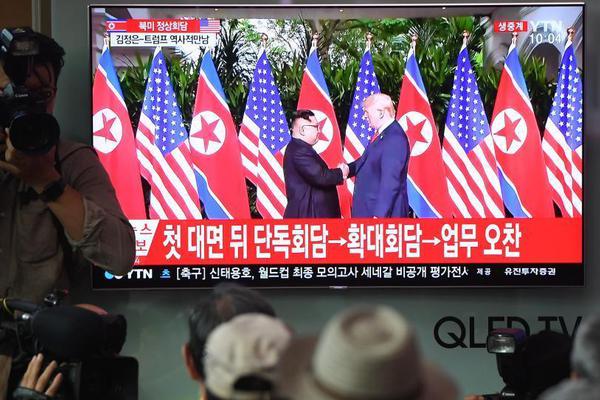Coins of No Nation
Facebook’s new cryptocurrency promises a government-free solution to poverty The Baffler
The Baffler o
l
u
m
n
s
Facebook’s self-image as an agora of global human connection has long been at odds with its mixed public reputation. Over the last couple years, the contradictions have only heightened, as Facebook has been battered by scandals over Cambridge Analytica, misinformation, handling of personal data, and much else. Despite the acquired successes of Instagram and WhatsApp, the great blue social network can seem like a product in decline, a place whose mostly gray-haired user base will eventually exhaust itself in a miasma of fake news, conservative memes, and low-res grandchild photos. But however much this storyline may resonate, Facebook is still blessed with the entrenched network effects that come with having billions of users across its products, its flagship social network included. It will be here for a long time. Amid the rising din of criticism, there is no way for Facebook but through, which is why it has continued to introduce new services—a video-chat screen called Portal, a company-wide shift toward private, encrypted messaging—even as it’s faced with public scorn and mounting government investigations.
Last week, Facebook introduced Libra, a digital cryptocurrency slash payments slash finance platform that it hopes will conquer the world as surely as its original social network did. Built on all the latest buzzy technologies—if the words “decentralized open-source blockchain” excite you, congratulations—it promises to be a kind of globe-straddling PayPal (if PayPal didn’t already exist), ferrying remittances and transactions all over the globe with minimal fees or fuss. Unlike Bitcoin, Libra’s value will be pegged to a basket of real-world assets, reducing volatility. It also may not be the colossal energy-sink that Bitcoin is. Or so the PR-burnished fairy tale goes: Libra won’t be released until 2020, meaning there’s still a lot we don’t know. But the company has already begun its rollout with a lavish media campaign and a sheaf of documents outlining Libra’s governance structure (a coterie of multinational companies who pay $10 million each for the privilege), its technical specifications (complicated), and its ideological underpinnings (decidedly neoliberal).
A few years ago, smartphones were going to drive the digital anti-poverty revolution. Now it’s smartphones plus blockchain.
It’s this last area that deserves special attention. The official Libra white paper, which outlines the project’s inspiration, purpose, and management, is a poor man’s stew of all the last decade’s discredited ideas from micro-finance and international development. Introducing itself as a benevolent gift to humanity, the white paper is dedicated largely to the goal of “financial inclusion”—connecting the world’s unbanked to western techno-capital.
Of course, it’s all presented far more charitably than that. “It’s time to try something new for the 1.7 billion people who are still unbanked thirty years after the invention of the web,” tweeted David Marcus, Libra’s co-creator. “Our hope is to create more access to better, cheaper, and open financial services—no matter who you are, where you live, what you do, or how much you have.”
Facebook, in short, is here to help. The immensely arrogant assumption baked into this project, of course, is that the world’s unbanked needaccess to financial services, much less those furnished by Facebook and its partners like Mastercard and Uber. In fact, much like micro-finance, which has mired countless people in overwhelming debt, financial inclusion initiatives have largely failed to reduce poverty. As one group of critics wrote, this is because financial inclusion is “founded on the naive view that financial development will always and everywhere make positive contributions to growth.” Poverty and lack of development are complicated, multi-factor affairs that “are neither primarily caused by lack of access to finance, nor are they fundamentally micro-level, local problems.”
More

The Techies Who Said Sorry
By Jacob SilvermanWhat’s missing, then, in both the financial inclusion and the Libra white paper narratives is the role of the state. Traditional governments are almost nowhere to be found in this literature, nor is there much expectation that governments might be responsible for providing social services and monetary assistance. Instead, corruption and incapacity are assumed, with corporate NGOs and institutions like the World Bank expected to fill the gaps with expertise and finely honed anti-poverty programs. (One of the few documents the Libra white paper cites is the World Bank’s 2017 Global Findex report on “measuring financial inclusion and the fintech revolution,” of which the World Bank has been a leading promoter.)
Naturally, the Libra paper offers no assessment of the failure of financial services to facilitate development. Crucial critiques—such as that micro-finance loans are often used by the poor for everyday consumption, rather than entrepreneurial activities—are disregarded. Instead, the dream of poverty alleviation is simply revised with new jargon and new technologies. A few years ago, smartphones were going to drive the digital anti-poverty revolution. Now it’s smartphones plus blockchain.
The world’s politicians have taken notice of Libra, even if Libra thinks nothing of them. A number of Democratic and Republican lawmakers expressed opposition to the project. European officials lined up to howl their protests. Despite basing Libra’s governance association in neutral, capital-friendly Switzerland, Facebook is likely to receive pressure and inquiries from governments around the world.
They’ve been here before. A few years ago, the company introduced its Free Basics plan, which provided a primitive, less data-intensive experience of the web by funneling all traffic through Facebook and a few approved apps, essentially occluding the difference between Facebook and the broader internet. The project was derided as a latter-day form of colonialism, pushing users into the Facebook data-maw with the altruistic promise of free services. Among other forms of pushback, Indian regulators blocked Free Basics as a violation of net neutrality. Facebook responded to criticism with its habitual “who me?” attitude, feigning innocence under the mantle of digital humanitarianism. As the company said in a statement at the time, “Our goal with Free Basics is to bring more people online with an open, non-exclusive and free platform. While disappointed with the outcome, we will continue our efforts to eliminate barriers and give the unconnected an easier path to the internet and the opportunities it brings.”
Digital connection, openness, humanitarian beneficence—all provided, strangely, for free by an American monopoly pledging that it comes in peace.
The language is almost the same as the Libra white paper. Digital connection, openness, humanitarian beneficence—all provided, strangely, for free by an American monopoly pledging that it comes in peace. For Facebook, the circulation of data is now the same as the circulation of capital, which is to say that all it has to do is insert a straw in the stream and drink up. While the company promises that Libra and Facebook data will be kept separate (with some possible exceptions for safety, it avers), it no doubt will benefit enormously from having access to a new stream of global financial information.
If by this time next year, buying, selling, and sending Libra is as easy as clicking a button in WhatsApp or Messenger, then Facebook may indeed have created something of enormous value. But for whom? The sense of messianic possibility expressed by David Marcus and other members of Facebook leadership may be genuinely felt, but there is little doubt whose financial fortunes will be helped by a stateless cryptocurrency like Libra: Facebook and its paid-up partners.

















